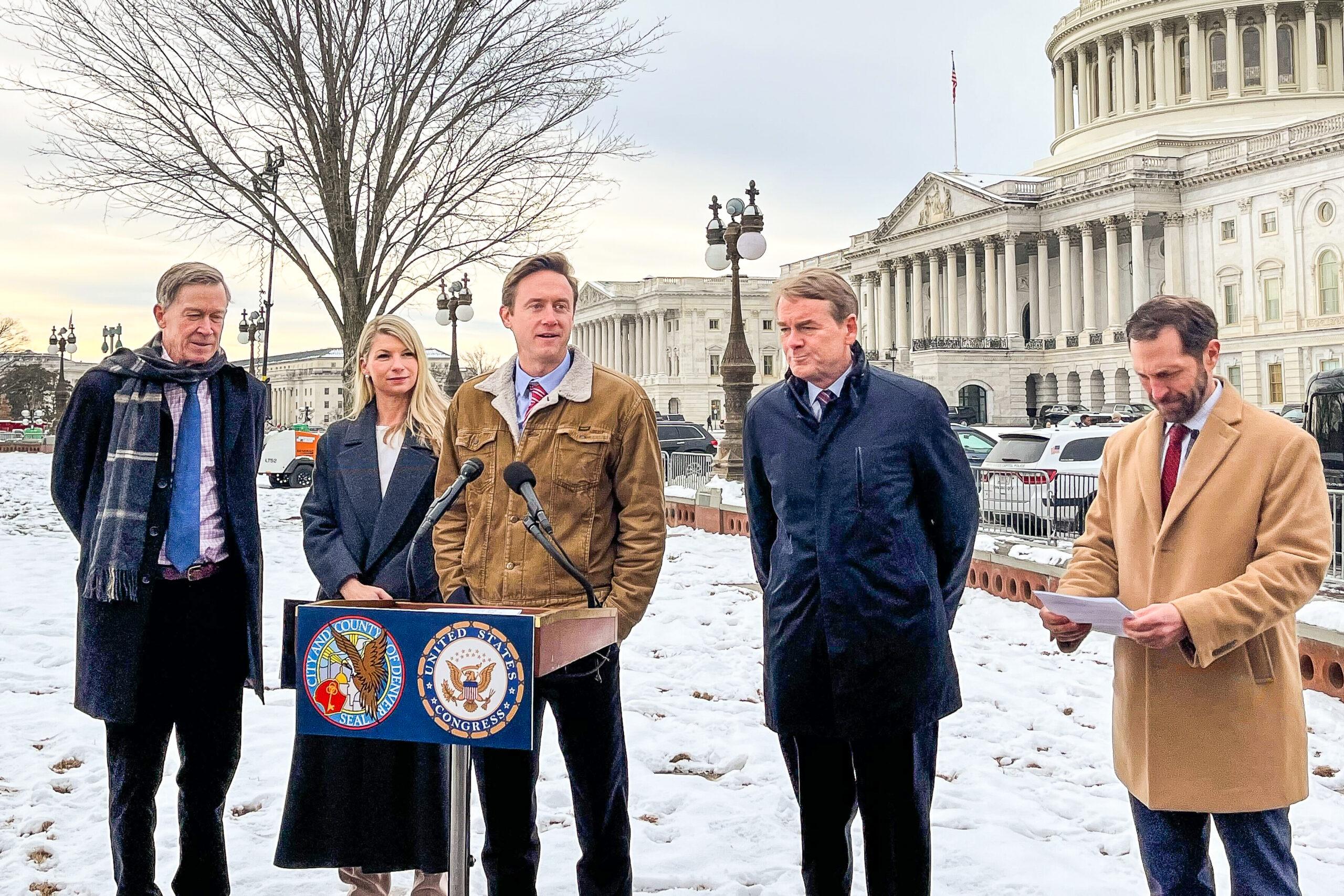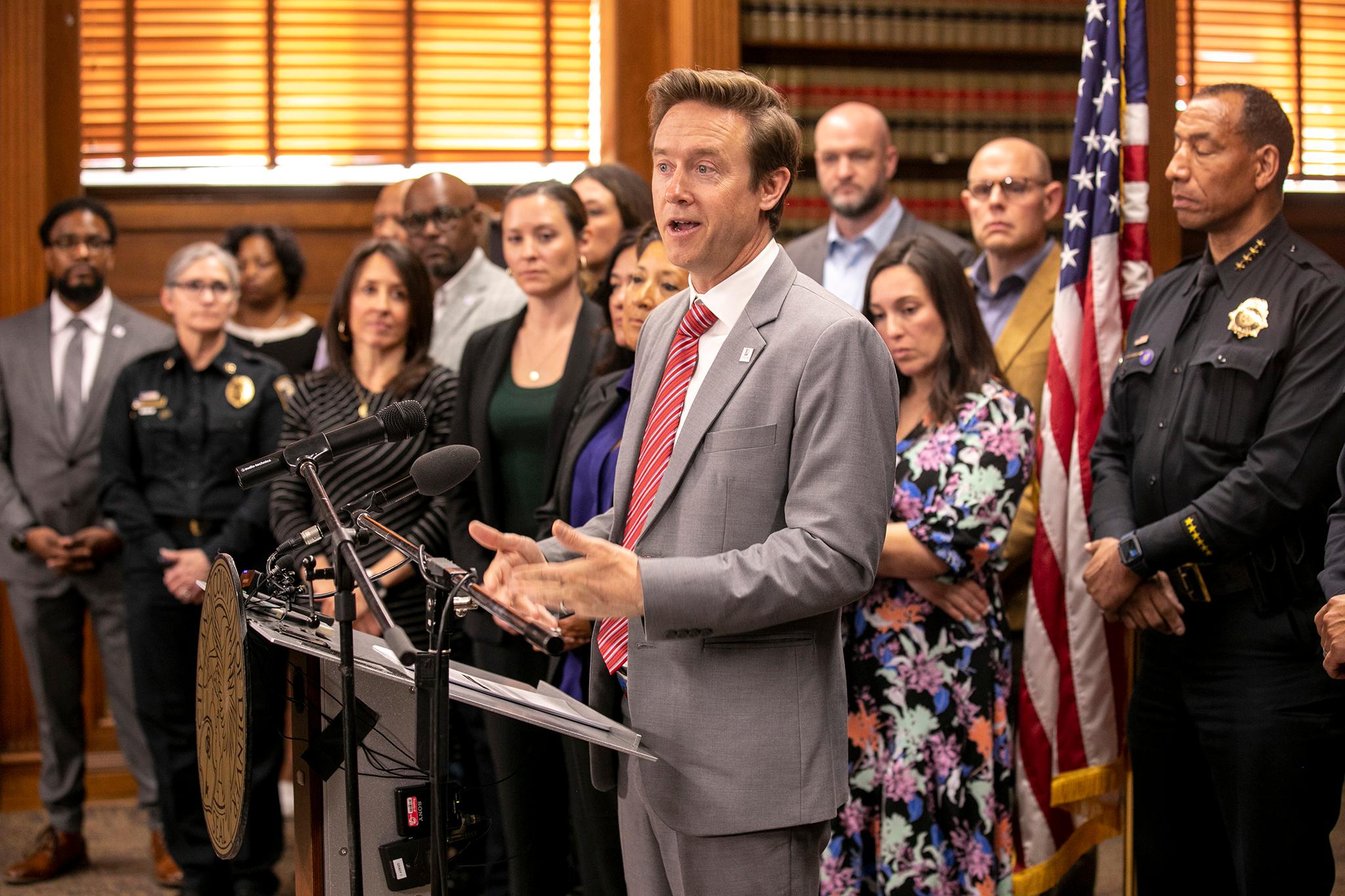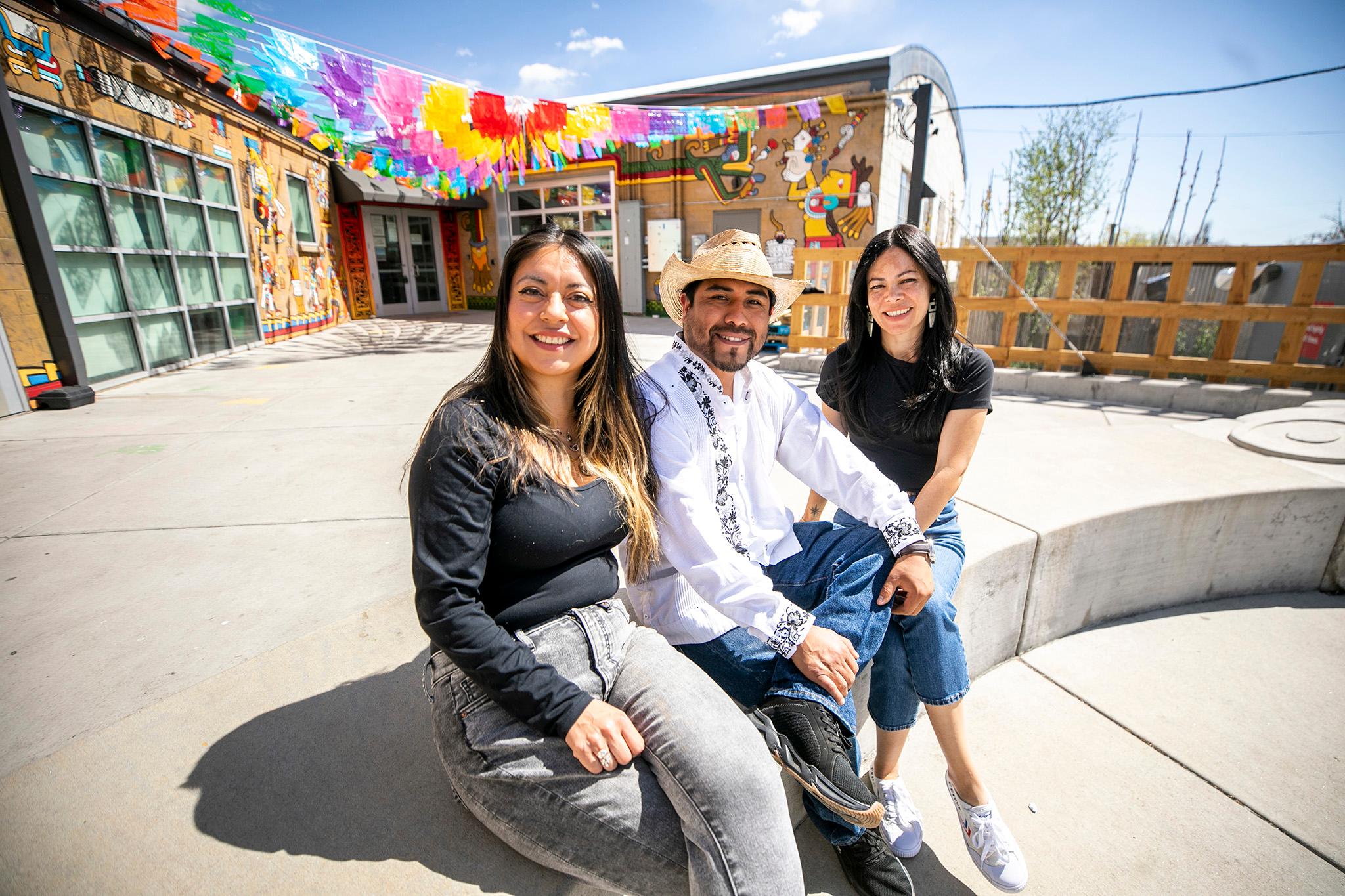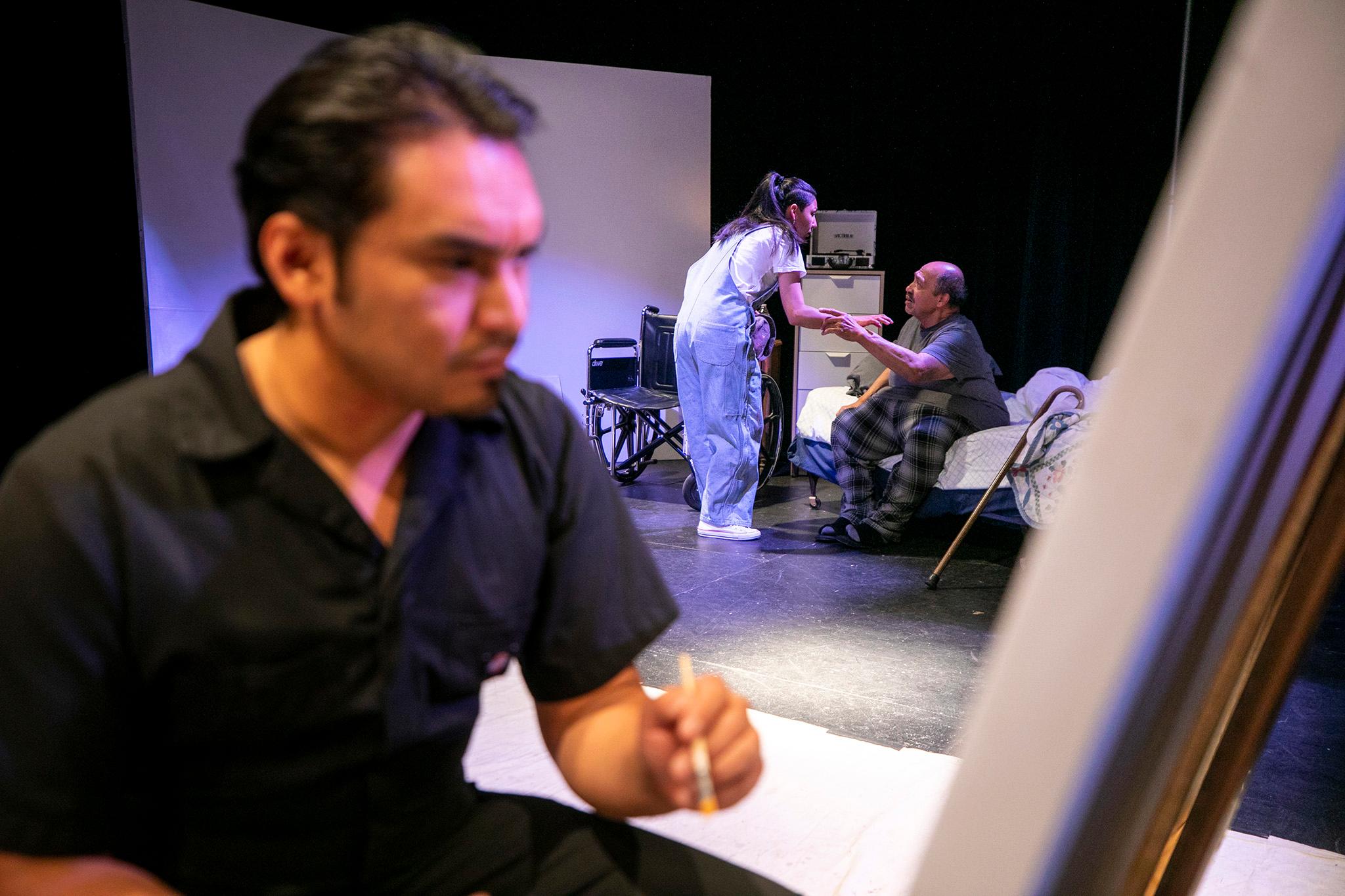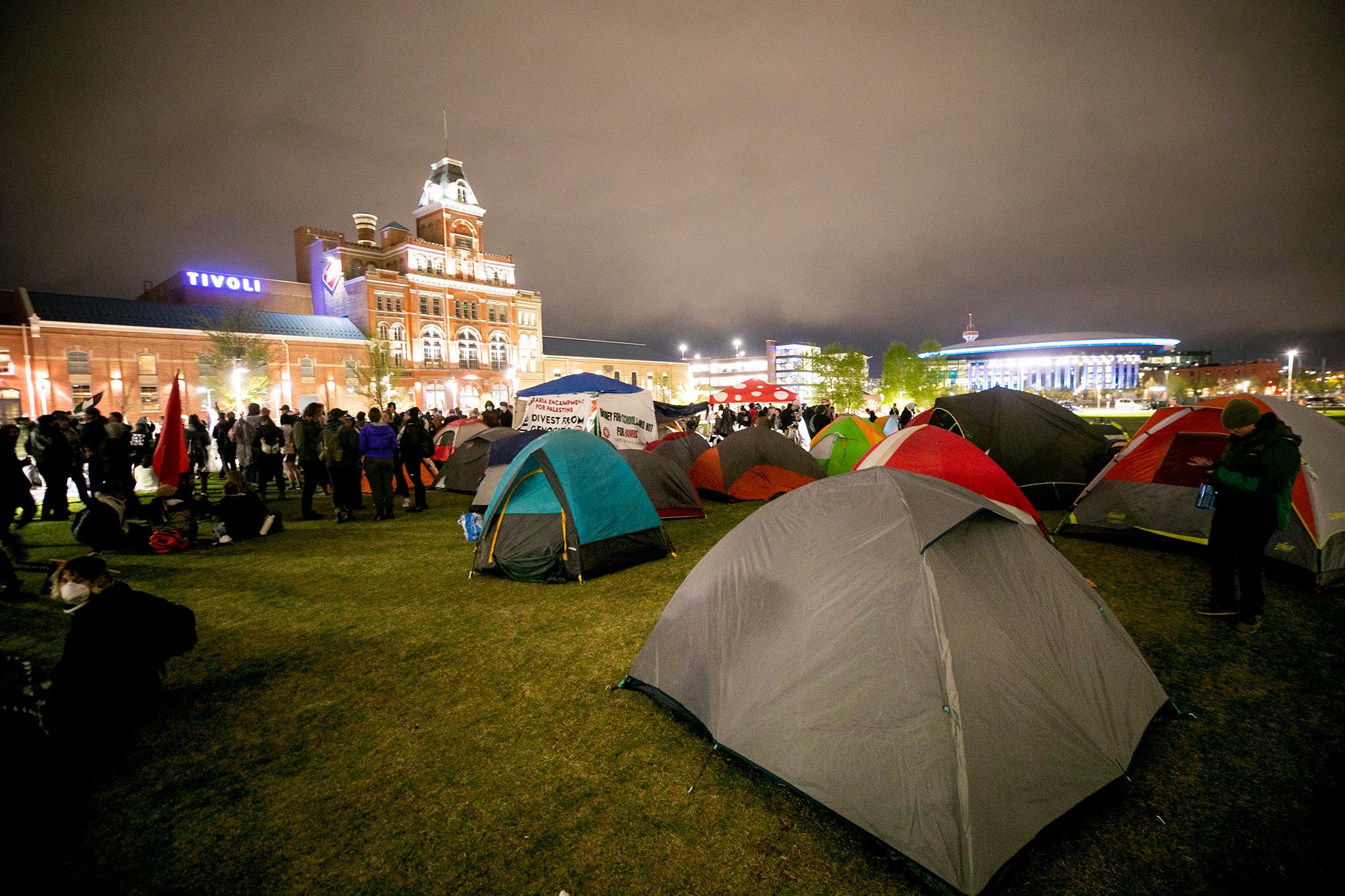"Wonderfully chaotic."
That's how Denver Mayor Mike Johnston described the scene of 300 mayors who gathered in a large Washington, D.C., hotel this week to talk about the issues important to their communities and meet with federal lawmakers and officials.
For Johnston, there was one concern foremost on his mind: the migrant crisis, and its specific impact on Denver.
"We have about 5,000 people in shelter on any given night, and we get 200 or 300 a day, every day, that arrive by bus," he said. The city expects to spend $180 million in its 2024 budget on sheltering and assisting migrants. Without federal help, that could mean steep cuts for other city services.
Still, the first-term mayor believes the problem is solvable -- but only if the federal government steps in.
"There's a way to do this correctly," Johnston explained. "And that would be, bring folks in with work authorization, have federal dollars to support them in being integrated successfully, and partner with cities and states to be able to have all of us receive a per capita share of what we can support successfully."
He said mayors are "used to trying to get stuff done" and that many mayors at the conference were supportive and willing to help advocate.
And there's one body in particular that he and others targeting with their advocacy.
"We really want to get the focus of the U.S. House of Representatives, to say there is bipartisan agreement on this on the ground in all of our cities. We want a system that works for cities and for newcomers, and we think there's a path to do that."
That's why a couple of hours later, Johnston found himself standing outside in the cold in front of the U.S. Capitol.
He was there with Sens. Michael Bennet and John Hickenlooper, and Reps. Jason Crow and Brittany Petters, all Democrats. The group urged Congress to pass a national security supplemental funding bill, currently being negotiated in the Senate.
That package includes money for border security and FEMA, as well as aid for Ukraine and Israel.
But funding is the easiest part of what the group wants to see happen. Johnston stressed the crucial need to allow migrants to gain work permits, swiftly and easily. He said he has two types of conversations almost daily in Denver -- one with migrants who don't want public charity, just the ability to work, and the other with business owners who have openings that they can't fill.
"So what we see is people here who want to work, people here who want to hire them, and a federal government who stood in the way of our ability to let those people go to work for the people that want to hire them," he said.
The Biden administration could act unilaterally to grant Temporary Protected Status to more recent migrant arrivals, allowing them to apply for work permits. But for Congress to take up the issue it would likely have to be part of a broader discussion of the immigration system as a whole. And all efforts along those lines have stalled for decades now.
Bennet is also worried that the chaos at the border could fuel anti-immigration feelings among Americans. "That would be a terrible outcome," he said.
Crow, who represents the most diverse district in the state, believes the immigration system is in desperate need of reform. "Congress must act in a common sense, reasonable way to fix that broken system and I'm standing here with my colleagues who are working very hard in good faith to do so."
Freshman Rep. Brittany Pettersen said what the country has in place right now isn't working. "We need to fix our asylum process. We need regional pathways for people to apply and we need quick turnarounds. Sending people off without the ability to work, saying, 'we'll see you in six years for a court date,' is a failed system."
But both lawmakers acknowledged the challenges reform faces, especially in an election year, and especially in the Republican-controlled House.
Speaker Mike Johnson on Wednesday dismissed any "comprehensive" immigration changes. "It's a complex issue. I don't think now is the time for comprehensive immigration reform, because we know how complicated that is," he said. The Speaker, however, does believe changes to border security are possible.
Later in the day, after a meeting at the White House to discuss the security supplemental, Johnson reiterated that any package must include strong border security. "We are insistent that the elements have to be meaningful. The House is ready to act, but the legislation has to solve the problem, and that's the critical point."
In 2023, House Republicans passed a border bill, known as H.R. 2, that would tighten asylum standards, require migrants to apply for stay in Mexico while applying for asylum, and end what's known as "catch and release," the practice of releasing migrants caught in the U.S. on their own recognizance while their petition is being heard rather than holding them in detention.
As migrant arrivals have increasingly strained city budgets, Republicans have continued to use the situation to criticize President Joe Biden and Democrats as a whole.
"The unrestricted flow of immigrants into Denver is the direct result of failed Democratic policies," GOP Rep. Ken Buck posted on the social media platform X, formally known as Twitter.
House Republicans are also moving closer to impeaching DHS Sec. Alejandro Mayorkas over the large number of border crossings, even as he's involved in border security negotiations in the Senate.
"I think the Republicans are just trying to use this as a political issue and it's a darn shame because cities like Denver are really suffering, trying to deal with this crisis," said Denver Rep. Diana DeGette.
Bennet knows better than most that just because the Senate reaches a deal, it will not necessarily blaze a path through the House. He was part of the 2013 group that came up with a bipartisan immigration reform bill that passed with strong bipartisan support in the Senate, only to see the Republican-controlled House fail to take up the bill because of pressure from its right flank.
His plea to Speaker Johnson is not to do that this time. "This is one of those cases where we can't just fail, blaming each other, as we often do, walk away and say it's someone else's responsibility," Bennet said.
But Speaker Johnson, perhaps even more than Republican Speakers before him, has little leverage to overcome a staunchly anti-immigration right flank. Illnesses, retirements, and expulsion have left him with a threadbare majority. And if he angers his caucus too much, a single member can call for a vote to eject him from his position.
"We need to be securing the border and removing illegal aliens from our country-not giving illegal aliens work permits and taxpayer-funded lawyers," said Arizona Rep. Andy Biggs, a House Freedom Caucus member, on X, the site formerly known as Twitter.
Despite all these challenges, Denver's Johnston said it hasn't changed his thinking about immigration. Although Denver this week reinstated time limits for migrant families in its shelters, he doesn't think any Coloradan would want migrants to go hungry or freeze. And he noted, if these newcomers are allowed to work, it could be a net positive for the state.
"We think the net positive dramatically outweighs the net negative. But the problem is the current system. If you require the government -- city or state or federal -- to bear the public costs of supporting people who want to work but can't, that then drives a cost without a benefit," he said.
In other words, it's a system that doesn't help anyone. Whether Congress can agree on changes, however, remains to be seen.
